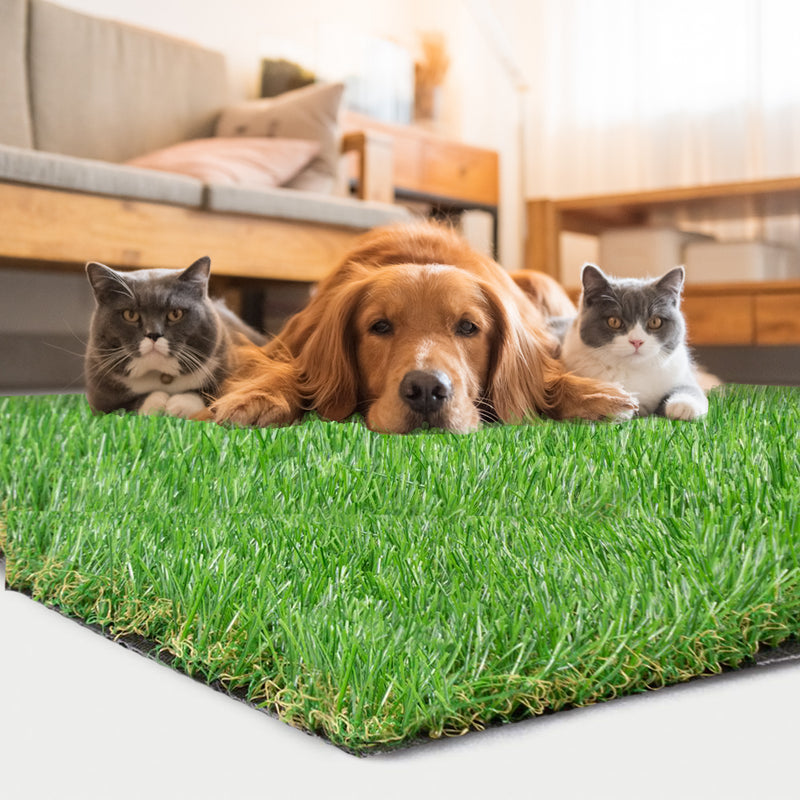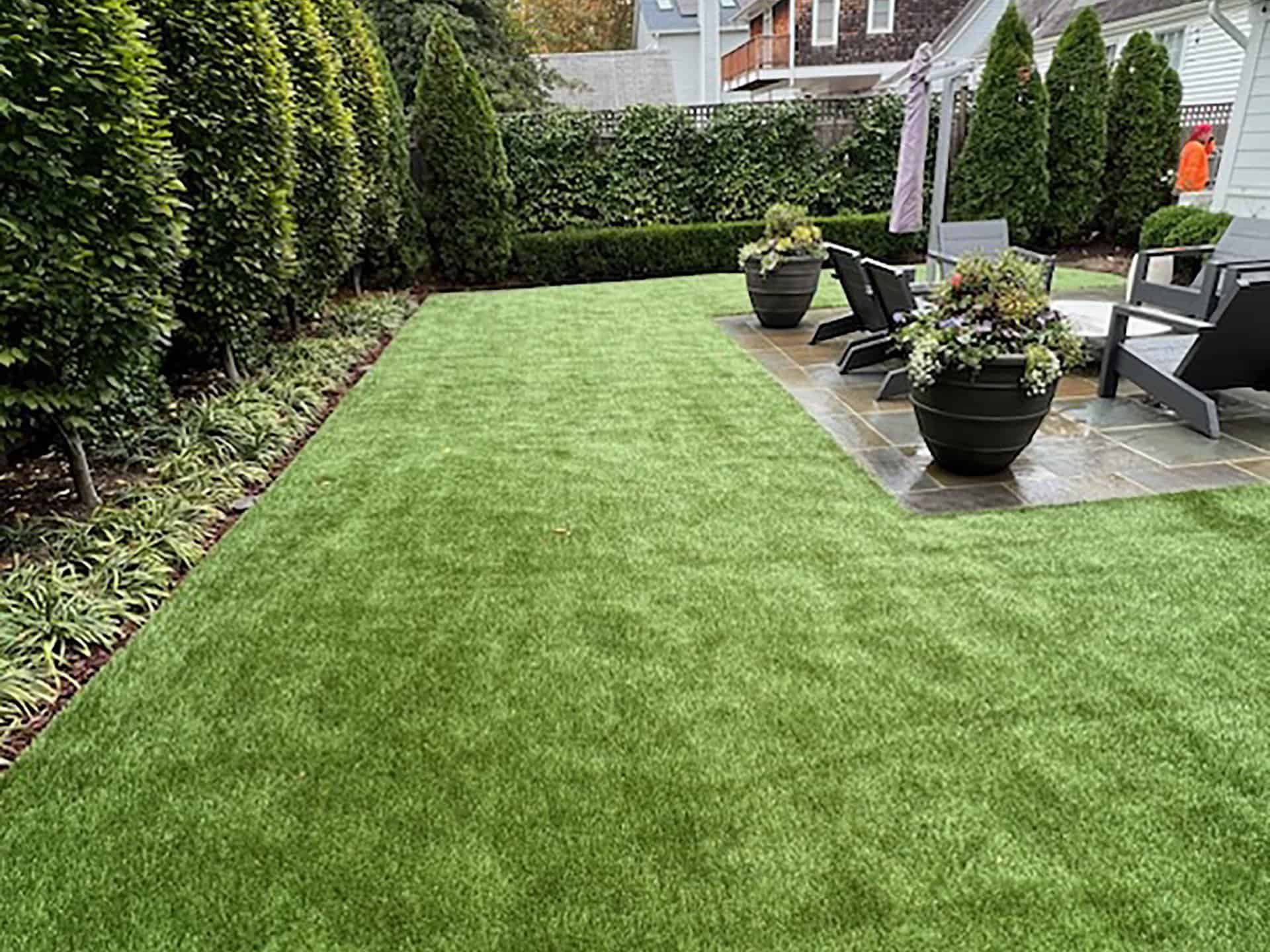Personalized Turf Installation Phoenix AZ for Residences, Companies, and Play Areas
See Why Homeowners Prefer Synthetic Grass for Sustainable Landscape Design Practices
As homeowners significantly focus on sustainability in landscaping, artificial grass has become a compelling option to traditional yard. Its ability to save water, lower maintenance efforts, and minimize ecological effect settings it as a sensible option for those looking for green remedies. Additionally, the aesthetic appeal and versatility of synthetic grass provide to diverse design choices. However, the effects of this shift extend past mere comfort and looks, prompting a better examination of exactly how these options affect wider environmental end results. What stays to be discovered is the full extent of benefits that fabricated turf can supply to property owners and the setting alike.
Water Conservation Conveniences
One of the most significant advantages of synthetic turf is its duty in water conservation. In comparison, fabricated lawn removes this demand completely, as it does not need irrigation.
Furthermore, the setup of synthetic grass can contribute to a much more sustainable landscape. Property owners can considerably lower their water bills, enabling reallocation of sources to various other ecological efforts or home uses. In addition, fabricated grass is developed to endure various climatic conditions without the demand for extra watering, making it a suitable option for regions encountering water deficiency.
The environmental benefits expand beyond immediate water financial savings. By minimizing water consumption, artificial lawn assists to reduce the influences of environment change, maintaining crucial communities that are threatened by too much water extraction. As lasting landscaping practices get traction, fabricated grass becomes an accountable selection for house owners seeking to produce environmentally friendly outdoor areas.
Reduced Maintenance Efforts
Synthetic grass dramatically decreases upkeep efforts contrasted to traditional lawn lawns. With man-made grass, house owners can eliminate the lengthy jobs related to natural landscape design, such as mowing, fertilizing, and weeding. This not just saves useful time yet also minimizes physical labor, making lawn care obtainable for individuals of any ages.
Standard yards need constant cutting to preserve a visually pleasing elevation, whereas man-made grass stays constantly rich without the requirement for cutting. Furthermore, property owners no longer need to apply chemicals or plant foods, which are commonly needed to keep natural grass healthy and balanced.
In addition, synthetic grass is durable and resilient, requiring marginal maintenance beyond occasional cleaning and washing to eliminate debris. This convenience of upkeep enables homeowners to appreciate their outside areas without the constant fear of maintenance, offering even more time for recreation and family tasks. Inevitably, the decreased maintenance initiatives connected with artificial turf make it an enticing alternative for those seeking a low-maintenance, visually appealing landscape.

Environmental Impact Reduction
There is a growing acknowledgment of the ecological advantages related to synthetic grass, especially in regards to water preservation and minimized chemical use. Typical grass require significant amounts of water, especially in drought-prone regions, resulting in enhanced stress on regional water sources. In comparison, synthetic grass gets rid of the requirement for watering, substantially lowering water intake and advertising sustainability.
In addition, traditional yard maintenance typically involves the application of plant foods, herbicides, and chemicals, which can add to soil and water air pollution. Fabricated turf mitigates this ecological threat by needing very little maintenance and practically getting rid of the demand for hazardous chemicals. This not just boosts soil wellness however also protects neighborhood environments from harmful runoff.
In addition, the manufacturing of natural yard lawns typically entails the usage of nonrenewable fuel sources for trimming and landscaping equipment, additional contributing to greenhouse gas exhausts. By selecting synthetic grass, property owners can significantly reduce their carbon footprint connected with lawn treatment activities.
Visual Appeal and Adaptability
Along with its environmental benefits, artificial turf uses substantial aesthetic charm and adaptability for landscape design. Property owners can accomplish a lavish, environment-friendly appearance year-round, getting rid of the seasonal changes generally associated with natural turf. This constant visual not just boosts the aesthetic appeal of a home however additionally adds to a well-maintained and polished i thought about this look.
Furthermore, man-made grass is offered in a selection of designs, structures, and shades, permitting personalization to fit individual preferences and design styles - i loved this Phoenix turf companies. Whether utilized in household gardens, business spaces, or leisure locations, it can seamlessly incorporate right into varied landscaping styles, from modern-day minimal to rich exotic setups
The adaptability of fabricated lawn prolongs beyond plain look; it can be set up in various areas, consisting of rooftops, patios, and also indoor rooms, developing chances for unique landscape design options. Furthermore, it appropriates for a range of tasks, from kids's play areas to pet-friendly settings, offering capability without jeopardizing style.
Inevitably, the aesthetic allure and adaptability of synthetic grass make it an appealing alternative for house owners seeking lasting landscaping options that do not sacrifice appeal for environmental obligation.

Long-Term Price Financial Savings
One of the most compelling advantages of fabricated grass is its capacity for long-term price financial savings. Unlike natural grass, which calls for routine maintenance-- consisting of mowing, watering, fertilizing, and pest control-- fabricated grass considerably reduces these recurring costs.
Additionally, synthetic grass has a lifespan of 15 to 25 years, relying on its quality and use. This longevity reduces substitute expenses, making it a more cost-effective choice in the future. Additionally, the first investment in synthetic grass can often be recovered through the cost savings accrued gradually.
While the in advance price may seem greater compared to sod setup, the collective savings from minimized upkeep and water usage commonly surpass these initial expenses. Inevitably, the adoption of synthetic lawn not just promotes a sustainable landscaping remedy but also uses home owners a financially savvy choice that straightens with lasting budgeting objectives.
Conclusion
Synthetic grass becomes an engaging alternative for sustainable landscaping, providing considerable benefits in water preservation, lowered upkeep initiatives, and diminished environmental impact. Its aesthetic appeal and flexibility improve the visual landscape while lining up with contemporary sustainability objectives. Lasting news price financial savings add to its appearance for house owners. As neighborhoods progressively prioritize environmentally friendly practices, the fostering of synthetic grass stands for a modern step toward achieving durable and sustainable landscapes.
In addition, synthetic turf is made to endure various weather conditions without the demand for additional watering, making it an ideal selection for regions facing water shortage. (Artificial turf companies phoenix)

Man-made lawn arises as a compelling choice for sustainable landscape design, providing significant benefits in water conservation, reduced upkeep initiatives, and decreased environmental influence.